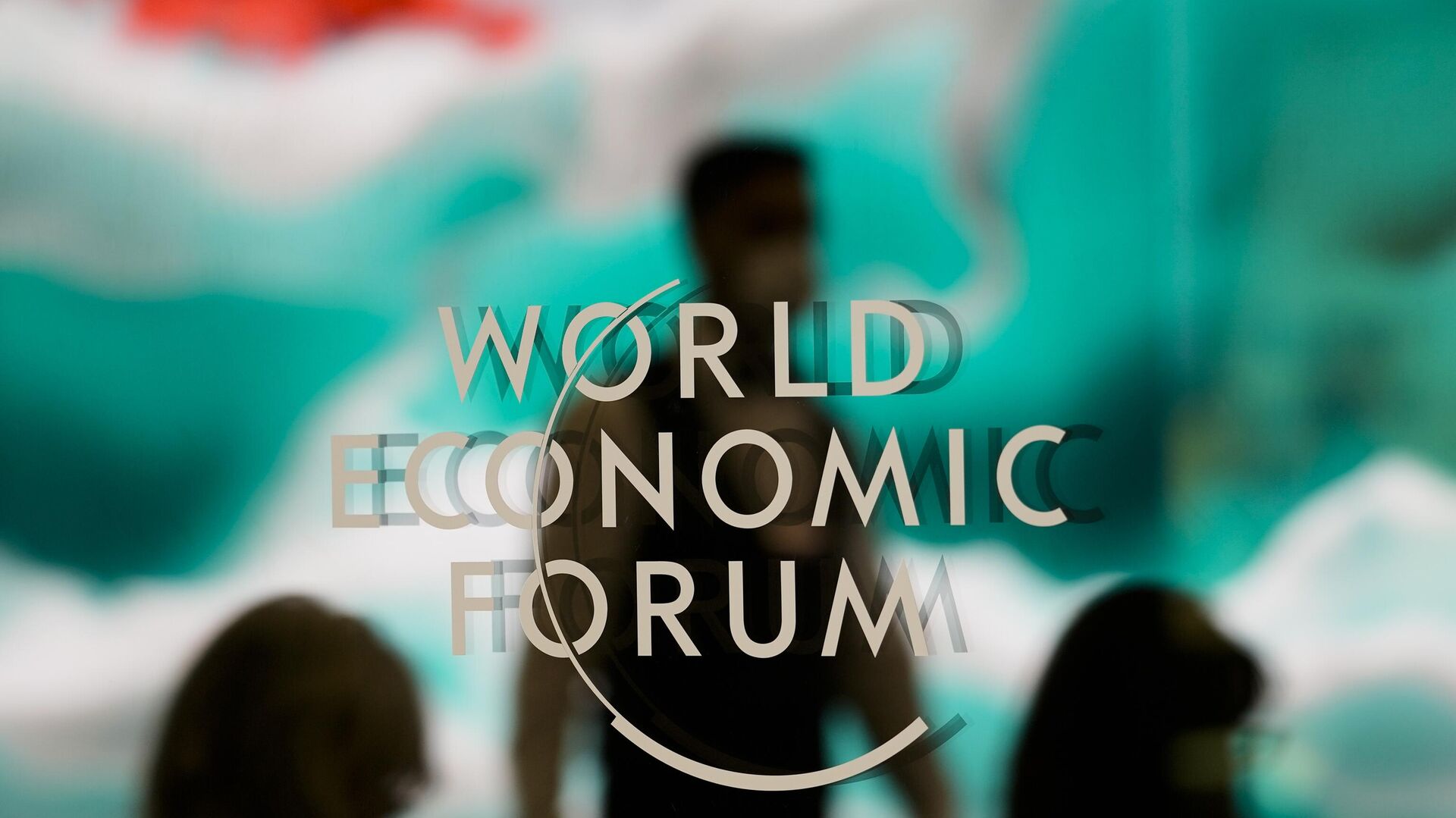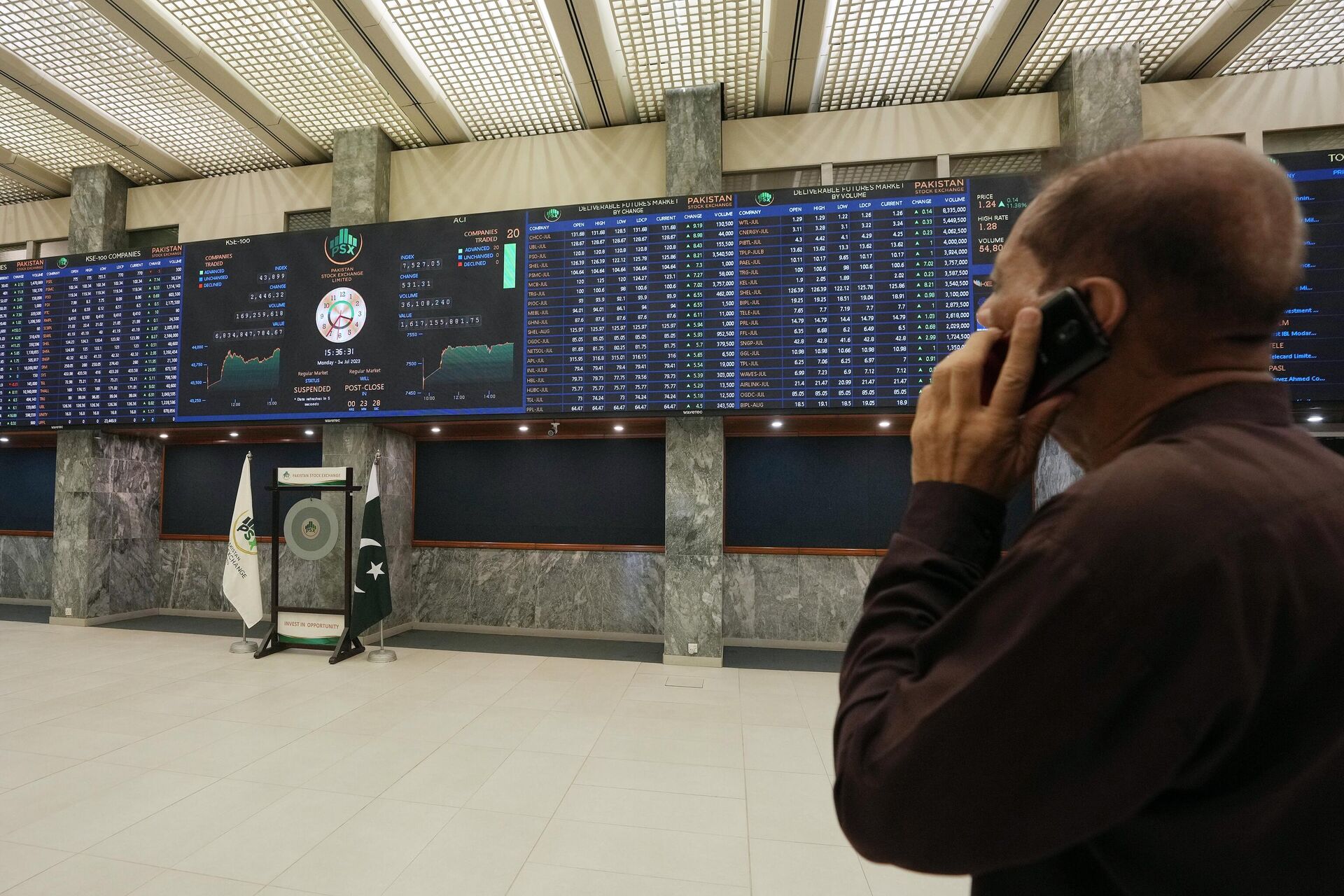https://sputniknews.in/20240117/developing-economies-are-target-for-western-vultures-davos-among-them-6228919.html
How Western 'Vultures' at Davos Exploit Developing Economies
How Western 'Vultures' at Davos Exploit Developing Economies
Sputnik India
Western countries have long tried to influence the economies of developing nations, through their control over global financial institutions like the World Bank and the International Monetary Fund (IMF).
2024-01-17T13:57+0530
2024-01-17T13:57+0530
2024-01-17T14:11+0530
sputnik opinion
india
davos
ukraine
world bank
imf loan
global south
delhi
new delhi
collective west
https://cdn1.img.sputniknews.in/img/07e7/01/12/544695_0:161:3071:1888_1920x0_80_0_0_d0fec0644eab7560c4c65202457488cb.jpg
Developing economies are prime targets of Western countries, and Davos is among them, an Indian academic has said.Dr. Anuradha Chenoy, a retired professor of international relations at India's premier Jawaharlal Nehru University (JNU), even went on to describe Western sovereign states as "vultures".Chenoy's remarks come amidst the ongoing World Economic Forum (WEF) in Davos in Switzerland.The WEF is a high-profile gathering of business leaders from across the world led by the West, which Chenoy highlighted was nothing but an event to maximize the profits of big corporations.World Bank, IMF Facilitating Exploitation of Developing NationsIn this backdrop, Chenoy mentioned that the WEF aims to get together the CEOs of big transnational corporations (TNCs) and leaders of countries, as a network event.She added that this in itself means it is a body of corporations looking for easy access into emerging economies, where their foreign direct investment (FDI) can give it quick and high returns. That is why Davos invites leaders of countries where they believe they can make big profits.India Should be Vary of Western CorporationsChenoy also stressed that for India, a country that is on a fast growth track, that seems sustainable for at least the next few years, they (the government) still want FDI in several sectors like infrastructure and high-end manufacturing.So, she elaborated that Indian leaders also visit Davos to attract such capital. However, Indian economists do warn that India, despite its robust economy, must be vary of these corporations.Ukraine's Reconstruction Headlined by American and European Multinational FirmsFor example, the geopolitics analyst explained that the West would not like people in the Global South to know that during the Ukraine conflict, most of the best agricultural land in Ukraine has been sold almost entirely to 2-3 multinational companies like Cargill and others.
https://sputniknews.in/20240112/india-wont-emulate-us-regulators-bitcoin-etfs-approval-rbi-governor-6172475.html
india
davos
ukraine
global south
delhi
new delhi
us
pakistan
Sputnik India
feedback.hindi@sputniknews.com
+74956456601
MIA „Rossiya Segodnya“
2024
Pawan Atri
https://cdn1.img.sputniknews.in/img/07e6/0c/13/139630_147:0:831:684_100x100_80_0_0_8fa2b25903e7787fe6a2698552c167df.png
Pawan Atri
https://cdn1.img.sputniknews.in/img/07e6/0c/13/139630_147:0:831:684_100x100_80_0_0_8fa2b25903e7787fe6a2698552c167df.png
News
en_IN
Sputnik India
feedback.hindi@sputniknews.com
+74956456601
MIA „Rossiya Segodnya“
Sputnik India
feedback.hindi@sputniknews.com
+74956456601
MIA „Rossiya Segodnya“
Pawan Atri
https://cdn1.img.sputniknews.in/img/07e6/0c/13/139630_147:0:831:684_100x100_80_0_0_8fa2b25903e7787fe6a2698552c167df.png
world economic forum, world economic forum 2024, wef 2024, davos world economic forum, world economic forum developing countries, world economic forum developing economies, world economic forum developing economies exploitation, anuradha chenoy, jawaharlal nehru university, world economic forum india, world economic forum profiting big corporations, world economic forum ukraine reconstruction,
world economic forum, world economic forum 2024, wef 2024, davos world economic forum, world economic forum developing countries, world economic forum developing economies, world economic forum developing economies exploitation, anuradha chenoy, jawaharlal nehru university, world economic forum india, world economic forum profiting big corporations, world economic forum ukraine reconstruction,
How Western 'Vultures' at Davos Exploit Developing Economies
13:57 17.01.2024 (Updated: 14:11 17.01.2024) Western countries have long tried to influence the economies of developing nations, through their control over global financial institutions like the World Bank and the International Monetary Fund (IMF).
Developing economies are prime targets of Western countries, and Davos is among them, an Indian academic has said.
Dr. Anuradha Chenoy, a retired professor of international relations at India's premier Jawaharlal Nehru University (JNU), even went on to describe Western sovereign states as "vultures".
Chenoy's remarks come amidst the ongoing World Economic Forum (WEF) in Davos in Switzerland.
The WEF is a high-profile gathering of business leaders from across the world led by the West, which Chenoy highlighted was nothing but an eve
nt to maximize the profits of big corporations.
World Bank, IMF Facilitating Exploitation of Developing Nations
In this backdrop, Chenoy mentioned that the WEF aims to get together the CEOs of big transnational corporations (TNCs) and leaders of countries, as a network event.
"Their goals are defined in terms of neoliberal globalization to facilitate the easy inflow and outflow of financial capital. So this Forum is not concerned with development, or the problem areas of the Global South like debt, dollar shortage, grain supply hurdles, or extractives, etc," Chenoy told Sputnik India on Tuesday.
She added that this in itself means it is a body of corporations looking for easy access into emerging economies, where their foreign direct investment (FDI) can give it quick and high returns. That is why Davos invites leaders of countries where they believe they can make big profits.
"The problem for many countries in the Global South is that they are caught in a spiral of debt repayments and restructuring. So many look for easy private loans, or selling resources to these corporations, that then swoop in like vultures for fresh meat and grab what they can," the strategic affairs pundit pointed out.
"This is facilitated by the ideas of the World Bank and IMF that encourage such privatization and conditionalities," she added.
India Should be Vary of Western Corporations
Chenoy also stressed that for
India, a country that is on a
fast growth track, that seems sustainable for at least the next few years, they (the government) still want FDI in several sectors like infrastructure and
high-end manufacturing.
So, she elaborated that Indian leaders also visit Davos to attract such capital. However, Indian economists do warn that India, despite its robust economy, must be vary of these corporations.
"For this year, one major agenda of the Davos meetings is to control popular narratives that critique western wars, inequality, climate activism, etc. The agenda is to hide the negative impacts and only present a rosy picture of these corporations and the Western countries," Chenoy opined.
Ukraine's Reconstruction Headlined by American and European Multinational Firms
For example, the geopolitics analyst explained that the West would not like people in the Global South to know that during the Ukraine conflict, most of the best agricultural land in Ukraine has been sold almost entirely to 2-3 multinational companies like Cargill and others.
"So indeed, countries of the Global South, especially those with fragile economies and vulnerabilities should be cautious of such Western private initiatives that have a hidden agenda of profits for the West and impoverishment for the South," Chenoy concluded.




